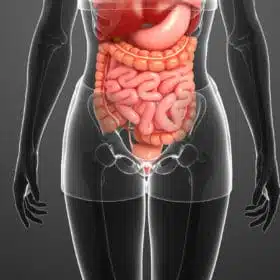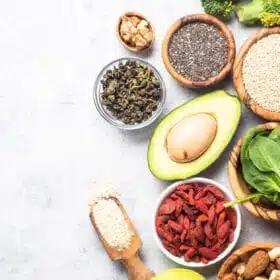Over the past nine months, you have been preparing your body and mind for the day your baby finally sees the light of day. Especially when your child breastfeed there is a lot of useful information that can help you optimize breastfeeding for you and your child.
What are the benefits of breastfeeding?
Countless studies and the practical experience of hundreds of generations of women have shown that breastfeeding has numerous benefits for mother and child. Probably the greatest benefit is in the nature of things, because as a food originally intended for human children, breast milk is so rich in nutrients that it optimally meets your child's needs. Understandably, no other food can do this. What's more, breastfeeding has been proven to significantly reduce the risk of pregnancy depression by creating an even closer bond between you and your child. This bond also manifests itself on a physiological level because, as researchers have shown, it also reduces the likelihood of you developing type II diabetes, rheumatoid arthritis or breast cancer.
When is breastfeeding not possible or suboptimal?
Even though breastfeeding has many advantages, there are still some reasons not to do so. This is the case, for example, if your body is unable to produce sufficient quantities of milk so that your baby has problems drinking enough. This can also be painful for you. Many new mothers also find it stressful and uncomfortable to feed their baby at the breast, which is understandable given the fact that this is done regardless of location and very often during the day. So if you don't feel comfortable with it, you shouldn't breastfeed either. As a compromise, you can of course also use a breast pump and build up a supply for your child so that you can still feed them breast milk. Nevertheless, let's take a closer look at the benefits of breast milk below.
What you should pay attention to in your diet
The most important thing you need to pay attention to in your diet if you want to breastfeed your child is that you consume enough calories. The general recommendation is between 450 and 500 kilocalories, which you should consume every day in addition to your personal requirements in order to optimally promote milk production. Of course, this requirement can vary from woman to woman, as everyone's body is different. So if you notice that you are putting on a lot of weight due to the extra calories, you should first reduce the number of calories by 100 kilocalories per day and monitor your weight. If necessary, further corrections can then be made. You don't need to be afraid that it will be too little in the short term, as your body can also use your body fat as a medium-term energy buffer, so to speak. To ensure that the nutrient composition of the milk is as good as possible, you should also make sure that you eat high-quality foods and don't stuff yourself with tons of junk food. The same rules of healthy eating apply, including vegetables, high-quality proteins and complex carbohydrates.
What should you pay particular attention to?
Protein:
Protein is not only an essential building block for your muscles, but also for breast milk. Even though breast milk contains even less protein than cow's milk at 0.9 grams of protein per 100 milliliters, it is the key nutrient that enables your baby's healthy growth in the first place. To ensure the best possible supply for your child, you need to consume at least 1.0-1.2 grams of protein per kilogram of body weight per day. Use as many different protein sources as possible to cover a broad spectrum of nutrients. In addition to fish and lean meat, this also includes eggs, dairy products, pulses, seeds and nuts.
Fat (especially omega 3 and omega 6 fatty acids):
Both during pregnancy and when breastfeeding, a sufficient intake of high-quality omega 3 and omega 6 fatty acids is very important, as these fatty acids in particular have a decisive effect on the development of your child's brain. It therefore makes perfect sense to try to supplement every meal with these unsaturated fatty acids. You can do this with wild salmon, whole eggs, nuts, seeds or appropriate omega 3 and 6 supplements, for example. Fats should also make up around 20 percent of your total energy requirement. Fruit and vegetables Vitamins and minerals are of course just as important for your baby as they are for you. It is important that you consume several portions of fruit and vegetables a day to ensure that sufficient amounts of these get into your breast milk when breastfeeding. Green leafy vegetables and starchy vegetables such as parsnips or carrots are very suitable. When it comes to fruit, pumpkins, bananas and wild berries, which are particularly rich in vitamins and antioxidants, are particularly recommended.
Carbohydrates:
A large part of your nutrient intake naturally consists of carbohydrates, even when you are breastfeeding. Even if you are hungry, you should avoid short-chain carbohydrates that cause your blood sugar levels to go on a rollercoaster. Instead, opt for wholesome complex carbohydrate sources such as potatoes, brown rice, wholemeal bread or wholemeal pasta.
When and how much should I eat?
There is no silver bullet for breastfeeding in this respect, as long as you stick to the aspects already mentioned with regard to the composition of your diet. Listen to your body and give it something when it tells you it's hungry - after all, it's working hard all day to produce milk for your baby. However, it is also important that you stop as soon as you are full, because even breastfeeding is not a free pass to gluttony.
Important micronutrients for breastfeeding women
Calcium:
Although calcium is an elementary component of breast milk, you don't really need to worry about your own calcium supply as long as you eat a balanced diet. The absolute minimum your body needs to produce milk is around 1,000 milligrams per day. So if you regularly consume dairy products, cabbage, sardines, salmon, soybeans, tofu or almond milk, this supply is usually guaranteed.
Vitamin D:
Vitamin D is one of the most important vitamins for your child's growth, as it supports bone health and prevents rickets. Due to the low proportion of vitamin D that we humans absorb through our diet, the proportion of vitamin D in breast milk is also very low. To increase this proportion, it makes sense to take the appropriate vitamin D supplements. A study by the American Journal of Clinical Nutrition was able to prove that the vitamin D content of mothers who are breastfeeding can be significantly increased by taking 2,000 UI (international units) of vitamin D3 daily.
What role does hydrogenation play?
As breast milk obviously consists mainly of water, an adequate water supply is of course essential for the quality of breast milk and for its sufficient availability. If you drink too little, this has consequences for you in particular, as evolution has programmed your body to give priority to your child. If you don't drink enough water, you will feel the consequences of dehydration first, which can lead to tiredness, headaches and kidney problems, among other things.
Should I avoid sports supplements when breastfeeding?
This question is of course quite justified, as all substances that you consume through food or supplements ultimately end up in breast milk. As long as your supplements are not stimulants or similar substances, there is no scientific evidence to suggest that taking them would have any negative effects. On the contrary, protein supplements such as whey protein, casein or BCAAs actually help you to meet your needs.
Does the food I eat have an impact on my child's wellbeing?
Some foods leave their mark on breast milk and can cause digestive problems and bloating in your baby. However, it is not possible to generalize the selection of the relevant foods, so you will have to experiment a little in practice. Foods that are often suspected of causing gas, such as garlic or hot spices, can usually be eaten without any problems.
Caffeine and alcohol
When breastfeeding, you should try to limit your caffeine consumption, as traces of the stimulant can also be found in breast milk. This can lead to your baby being awake for longer and sleeping more restlessly. However, there is nothing wrong with a cup of coffee in the morning. The situation is similar with alcohol. Ideally, of course, you should avoid it completely when breastfeeding. From a scientific point of view, however, a glass of beer a day, for example, is considered safe as long as there are at least two hours between consumption and breastfeeding.
Conclusion
We hope that the information in our article has helped you to decide whether you want to breastfeed your child or not. In any case, you should keep the key facts in mind.
Omega 3
OMEGA 3 contains high-quality fatty acids (fish oil) and provides your body with an optimal supply. It is not for nothing that omega-3 fats and various amino acids are classified as essential. In addition to hormone synthesis, these special fats are also responsible for regulating growth, healing wounds, promoting memory and strengthening the immune system.
Omega 3





